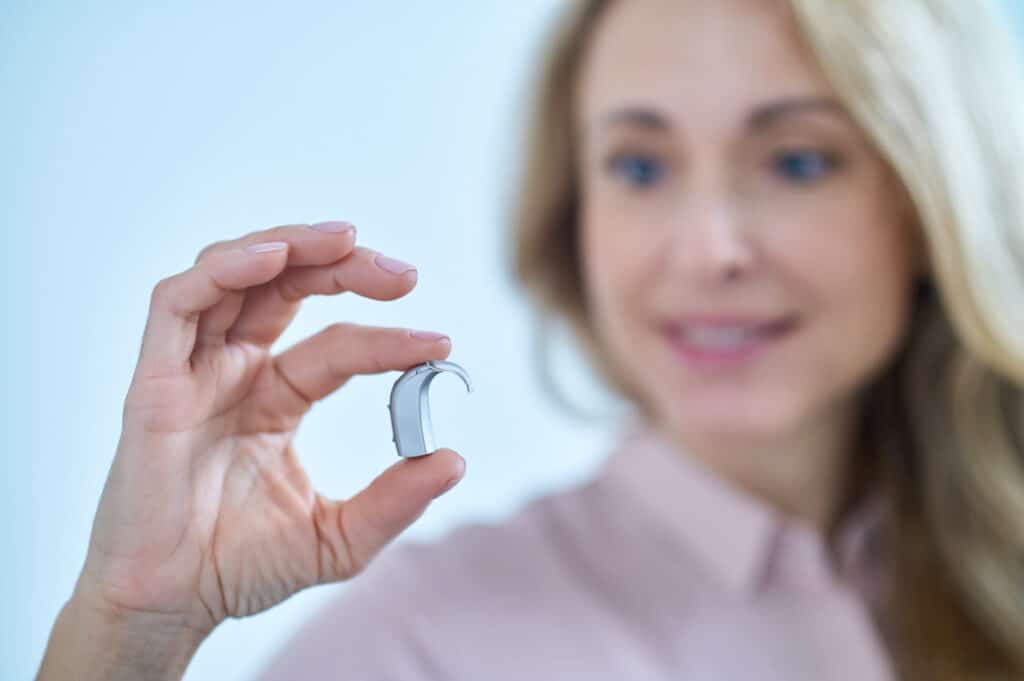Fewer than 30% of people aged 70+ with hearing loss who could benefit from hearing aids have used them. A major barrier is the concern that hearing aids won’t work as expected. Since every experience is unique, it can be hard to predict exactly how they’ll sound. Let’s explore what you can expect when getting your first pair of hearing aids.
My Hearing Aid Fitting Appointment

The journey begins with selecting your first pair of hearing aids. Your audiologist will guide you through options, which typically include in-the-ear and behind-the-ear styles. Once you’ve chosen, the next step is the fitting or programming appointment. This is where your audiologist will tailor the settings to match your specific hearing needs.
After this initial fitting, don’t be surprised if you’re scheduled for a follow-up appointment in a few weeks. This check-in is crucial to fine-tune the devices and ensure they’re doing their job effectively. Hearing aids aren’t one-size-fits-all; they’re a personalized tool to help you hear better.
Adjusting to New Hearing Aids
The first days and weeks with hearing aids can feel like stepping into a new world of sound. For many, the adjustment period brings surprises. Sounds you’d forgotten or didn’t even notice before—like a neighbor’s chatter or birds chirping at the Katy Boardwalk—might suddenly seem loud or overwhelming.
Here’s the key: stick with it. Wear your hearing aids daily, except when sleeping or showering. The more consistently you use them, the faster your brain will adapt. It’s a bit like breaking in a new pair of shoes; at first, they feel different, but over time, they’ll feel like they’ve always been a part of your life.
A few helpful adjustment tips include:
- Wear your hearing aids for a few hours each day, gradually increasing the duration
- Use them in quiet environments before trying them in noisier settings
- Take notes on any discomfort or sounds that feel off so you can share them with your audiologist
What Sound Quality Can I Expect?
One thing to understand is that hearing aids amplify and clarify sounds but don’t restore perfect hearing. They’re designed to focus on the specific frequencies you struggle with, making it easier to communicate and stay aware of your surroundings.
In the early days, some sounds—even your own voice—might seem strange or unnatural. Music might not feel quite the same and certain tones could stand out more than others. That’s completely normal. With time and consistent use, your brain will adapt, and these sounds will start to feel natural again.
Adjusting to hearing aids takes patience and persistence, but the rewards are worth it. To learn more about how hearing aids can help you, contact Today’s Hearing today.